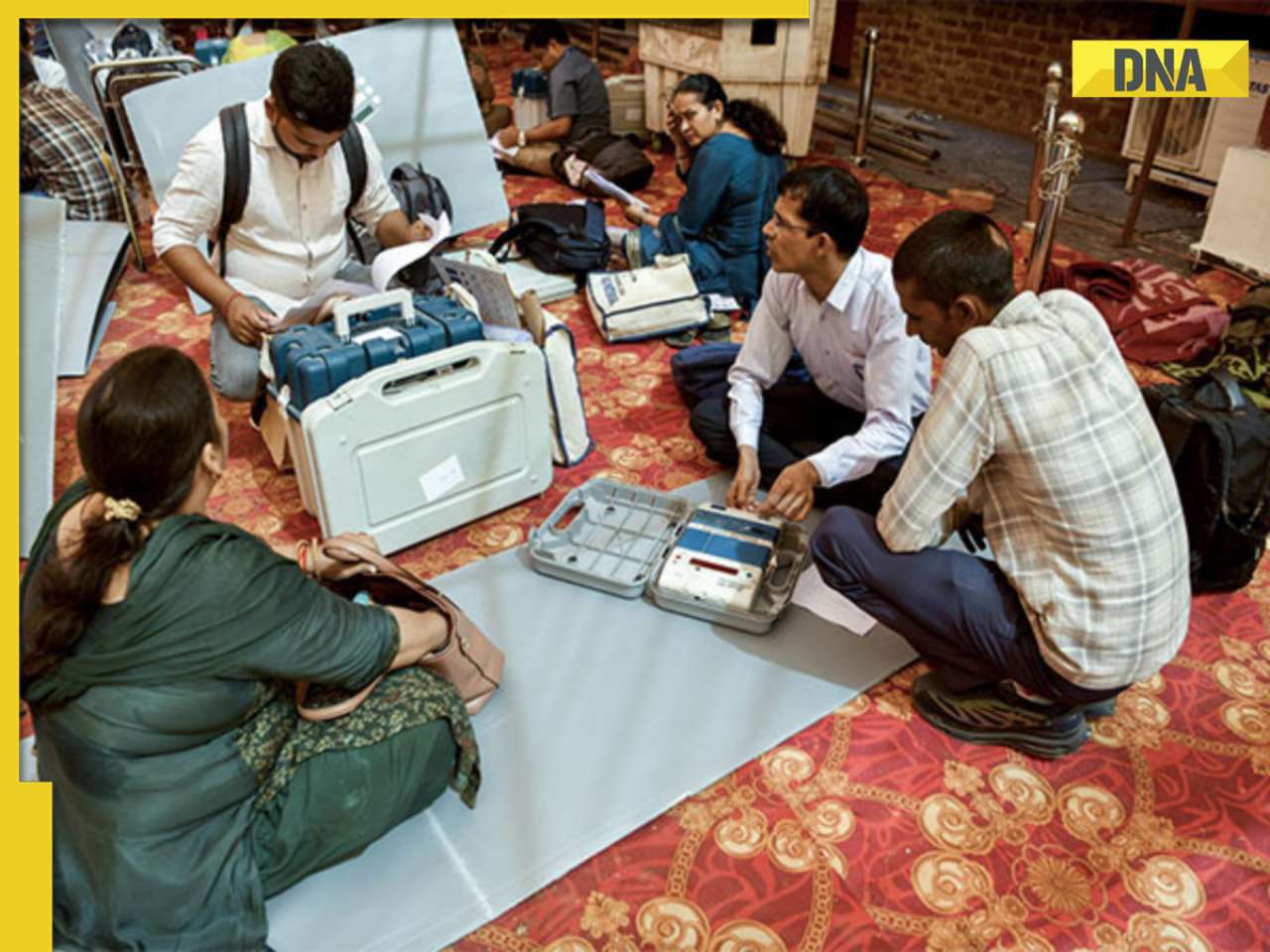
The counting of votes began on Tuesday for 90 Assembly constituencies in Jammu and Kashmir, the final leg of an electoral journey that will give the union territory its first elected government since the abrogation of Article 370 in 2019.
The counting of votes commenced at 8 am amid a three-tier security cover at 28 centres set up across 20 districts of the union territory, an election official said.
A clear picture of trends is expected by afternoon, the official said.
The Congress-National Conference alliance, the People's Democratic Party (PDP) and the Bharatiya Janata Party (BJP) are the main stakeholders in the keenly watched assembly election held five years after the erstwhile state was bifurcated into the union territories of Jammu and Kashmir and Ladakh.
J-K Chief Electoral Officer PK Pole said adequate checkpoints were set up within 100 metres of each counting centre and CCTV cameras were installed in all strong rooms housing the EVMs to closely monitor all activities.
“Unauthorised individuals will be restricted from entering these areas and CCTV cameras have been installed at the main entrance and throughout the entire premises of the counting centres to ensure comprehensive monitoring," Pole said.
Pole said the postal ballots will be counted first, followed by the counting of Electronic Voting Machines (EVMs) after 30 minutes, adding that accurate information on each round of counting will be uploaded promptly.
The official said two counting centres each have been set up for Kupwara, Samba, Jammu, Udhampur and Reasi districts, one counting centre each for Srinagar, Ganderbal, Budgam, Baramulla, Bandipora, Anantnag, Kulgam, Pulwama, Shopian, Rajouri, Poonch, Kathua, Kishtwar, Doda and Ramban districts while three counting centres have been set up for migrants.
Various observers have been appointed by the Election Commission to monitor the counting process, Pole said, adding that only authorised individuals, officials and staff were permitted inside and around the counting centres.
Public and political party representatives are requested not to crowd the counting centres and check the results at home, he said.
The first assembly elections in Jammu and Kashmir since 2014 were held over three phases, registering 64 per cent voter turnout.
Of the 90 seats in the Kashmir Valley and Jammu region, 24 voted in the first phase on September 18, as many as 26 voted in the second phase on September 25, and 40 in the third phase on October 1.
The counting will decide the fate of 873 candidates vying for a seat in the 90-member house.
Prominent figures among those in the fray are NC leader Omar Abdullah (from Budgam and Ganderbal), Sajad Gani Lone of People's Conference (from Handwara and Kupwara seats), Pradesh Congress Committee president Tariq Hamid Karra (Batamaloo) and BJP state president Ravindra Raina (Nowshera seat).
The other notable contestants are AICC General Secretary Ghulam Ahmad Mir (Dooru), PDP leaders Waheed Para (Pulwama), Iltija Mufti (Bijbehara), Apni Party President Altaf Bukhari (Chanapora), CPI (M) veteran Mohammad Yousuf Tarigami (Kulgam), and former deputy chief ministers Muzaffar Hussain Baig and Tara Chand.